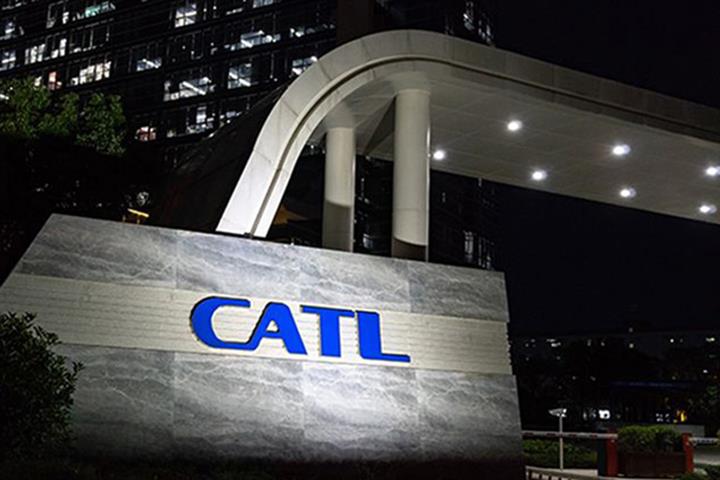 CATL Denies Dumping Fire-Prone 811 Battery After Its Shares Implode
CATL Denies Dumping Fire-Prone 811 Battery After Its Shares Implode(Yicai Global) Sept. 8 -- Contemporary Amperex Technology today denied a rumor it will abandon the high-nickel 811 battery after the world's leading car battery maker’s shares tumbled over 11 percent yesterday on concerns major automakers will eschew high-nickel batteries over safety concerns after a trio of fires linked to the cells over the spring and summer, financial media Securities Times reported today.
The sharp decline yesterday slashed the Ningde, Fujian province-based firm's market cap by over CNY40 billion (USD5.9 billion). Its shares [SHE:300750] recovered in the afternoon to close 0.27 percent up at CNY186.90 (USD27.32) after having fallen a further 2.46 percent in the morning.
The NCM 811 battery is 80 percent nickel, 10 percent cobalt and 10 percent manganese. It has a longer lifespan and allows electric vehicles to go farther on a single charge, a key point of EV performance. This kind of high nickel battery was first adopted by Panasonic, and then mass-produced by the CATL. It is widely used in cars with a range of over 500 kilometers.
"The high-nickel battery is the 'commanding height' manufacturers are fighting for, and the NCM 811 is the essential path to seize that eminence," CATL said, emphasizing the company not only competes with domestic peers but also contends with other foreign rivals like LG Chem for international orders.
"[We] won't give up the 811 battery because this is the necessary route to strive for dominance and power of discourse in the traction battery area," media cited a CATL insider as stating. "Relinquishing the 811 battery means abandoning the high-end market," the insider added.
Technology Tracks
Two causes sparked the rumor that mainstream carmakers will give up the NCM 811 battery, the report said, citing analysts. First, three spontaneous ignition accidents recently occurred with the Aion S, a compact electric sedan model from GAC New Energy, in South China in May and August, after which the carmaker switched to China Aviation Lithium Battery Technology's NCM 523 high-voltage battery, stoking concerns over the safety of high-nickel ternary lithium-ion batteries. Second, CATL rival BYD is developing its own competing battery on a different technological tack.
NCM 811's poorer safety and stability and NCM 523's higher performance-price ratio prompted GAC NE's shift to the NCM 523, the report cited an Industrial Securities' analyst who preferred to remain anonymous. But other electric models, including Xpeng's P7, Volkswagen's MEB, Nio's ES6 and BMW's plugin-hybrid model X1 are still equipped with CATL's NCM 811 batteries.
Second, since the year's start, various carmakers have chosen to use low-nickel ternary battery or lithium iron phosphate battery lithium iron phosphate batteries, which are more mature and have a lower energy density. Some commentators suggest changes in market demand will dampen battery companies' efforts to push forward the NCM811 battery.
LG Chem ranked first in market share of power battery installed capacity of 26.8 percent in July, surpassing CATL, which followed at 25.4 percent, per a Sept. 1 report by South Korean energy market analysis firm SNE Research.
Editor: Ben Armour